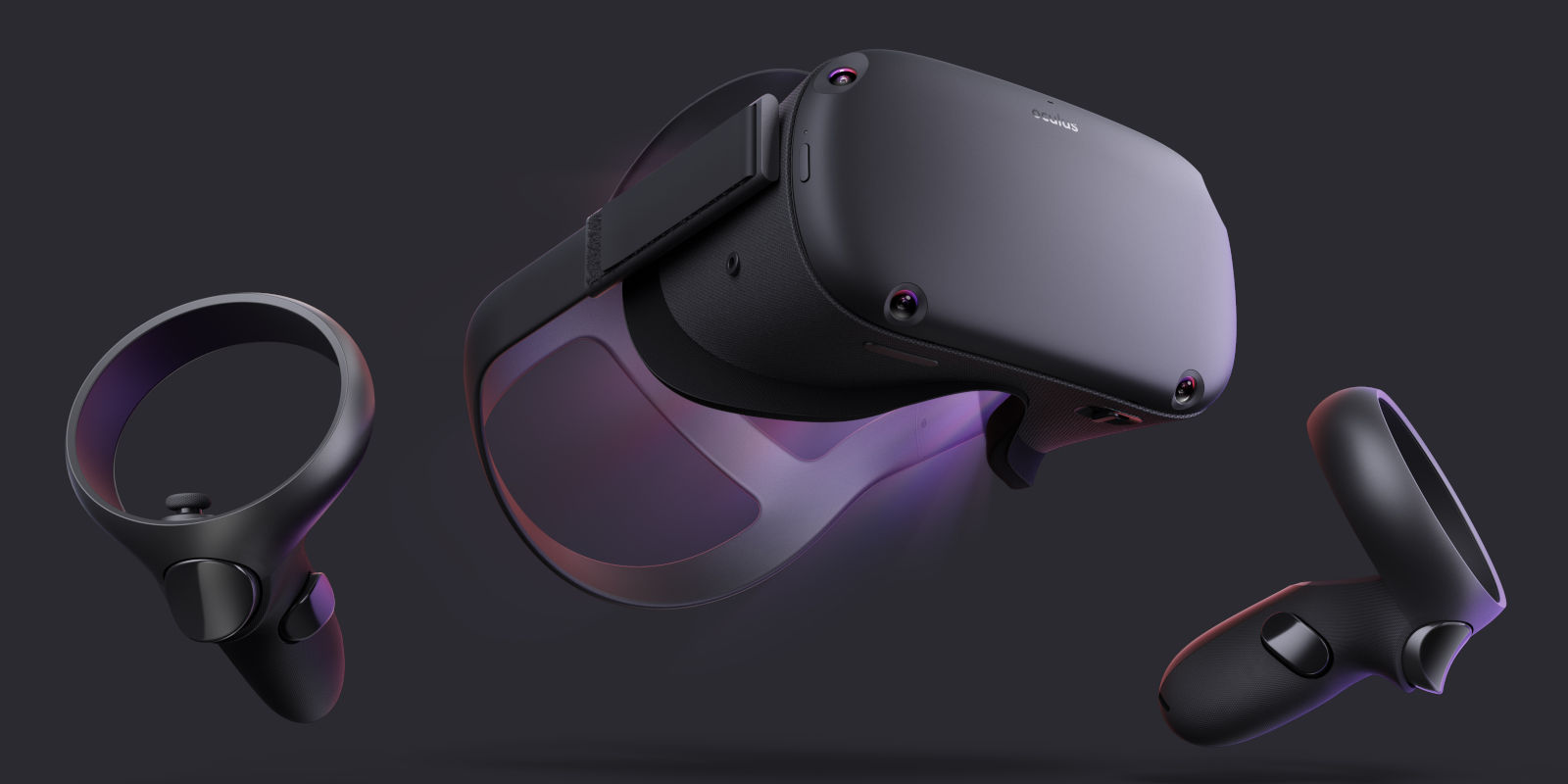A little over a week ago, I ordered an Oculus Quest direct from Oculus. Although it was out of stock, I received the package two weeks ahead of schedule—and having played around with it for a few days, I finally see the light. You might call me a believer, even a convert, because I now feel strongly compelled to evangelize for virtual reality. I'm shook. I'm hooked.
What changed my mind? Well, let me give you the background on my experience with VR.
Why Consumer VR Sucked Until Now
I own a fourth-generation Samsung Gear VR—the one that was released alongside the Samsung Galaxy S8—that I bought used for $60.
As a Galaxy S8 owner, the Gear VR was the cheapest way to try virtual reality without resorting to bottom-barrel options like Google Cardboard or its numerous knockoffs.
I never even considered the Oculus Rift, HTC Vive, or Valve Index because I don't have a gaming PC and don't care to build one. The Oculus Go was tempting but too expensive for what it offered, so I went with the Gear VR, which offered the same essential experience at a fraction of the price.
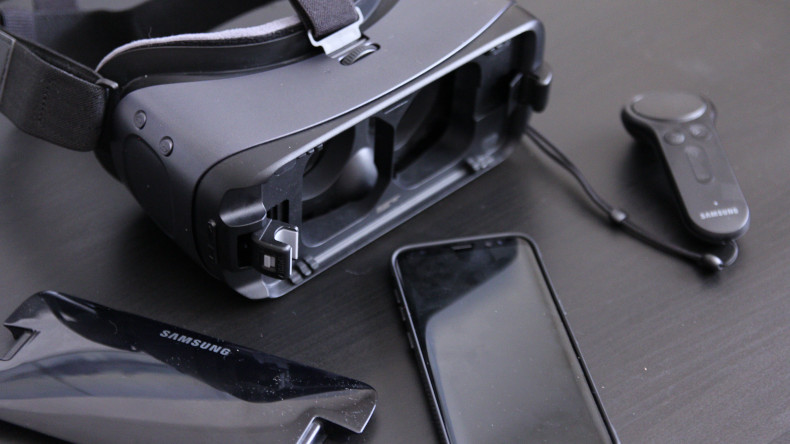
All this to say, up until a few days ago, I've never experienced virtual reality as it was meant to be experienced. Devices like Google Cardboard and Gear VR and Oculus Go are faux VR and you should avoid them—do NOT let them be your first VR experience!
You will hate it, you will decide that VR is unimpressive, and you will unfairly write it off. (Especially if, like me, you have to deal with popping your phone in and out of the headset every time you want to use it. Ugh!)
What makes them "faux VR"? All of these cheapo VR devices are 3DOF—three degrees of freedom—meaning you can 1) look up and down, 2) turn left and right, and 3) roll side to side, but you can't actually move your head and have that movement translate into the VR experience. True VR requires 6DOF—six degrees of freedom—which includes 4) moving front to back, 5) moving side to side, and 6) moving up and down. It may not sound too important on paper, but these movements are essential for full immersion. That's what I was missing with the Gear VR, and that's why VR felt so bland.
What's Special About the Oculus Quest?
For starters, it has 6DOF. That's key.
It's also a wire-free, standalone device. Whereas the Oculus Rift, HTC Vive, and Valve Index all need to be plugged into a powerful PC, the Oculus Quest is its own self-contained device that's entirely portable.
You could take it to the park and play in an open field if you wanted to—but even if you don't, the lack of a wire is important for greater immersion. Being able to slash enemies or dance around on a stage without having to worry about getting tangled is a huge plus. This combined with 6DOF is a serious game changer.
I repeat: the Oculus Quest provides 6DOF VR without the need for a gaming PC! Given that hardcore gamers are a super minority, this is a massive step forward for VR adoption by the general public.
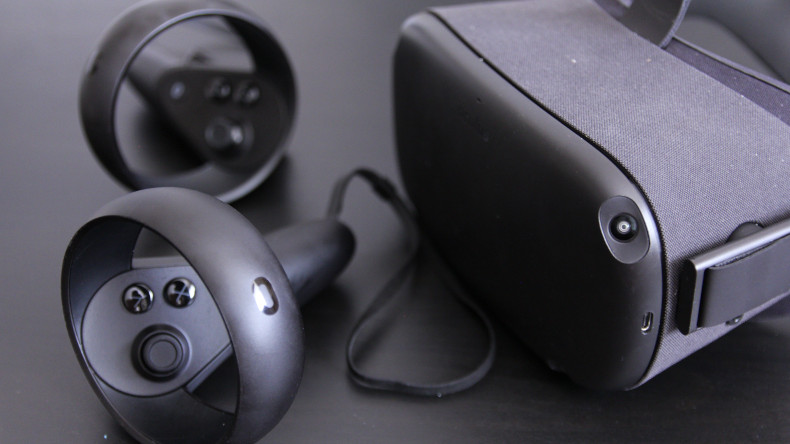
The Oculus Quest also comes with two second-generation Oculus Touch controllers, which are way better than the dinky laser-pointer controllers that come with the Oculus Go and Gear VR.
These controllers for the Oculus Quest are advanced enough to know when your hands are open, pointing, or making a fist—and these distinctions are super handy when you're playing games.
Again, it may not sound that special on paper, but it opens up so many potential gestures and interactions that just aren't possible with a laser-pointer controller.
All of these come together to provide an immersive and convenient VR experience that just isn't available elsewhere right now. The sum is absolutely greater than the parts, and it's the 6DOF that's the most revolutionary bit. Yet while those are the major factors that have me raving about the Oculus Quest, there are a few other things worth noting.
What I Like About the Oculus Quest
Packaging and build quality. I don't normally buy name brand luxury goods, aside from my MacBook Pro (provided by work) and my Samsung Galaxy S8 (provided by work). Needless to say, I was impressed by the Oculus Quest's packaging, which feels lightyears ahead of the junk I often get on Amazon. The build quality of the headset itself is nice, too. It's hefty, it's made of quality materials, and it feels expensive.
Easy setup and convenient to use. I was set up and ready to go within a minute; all you need to do is download the Oculus VR mobile app. Updating the firmware took a while, but it is what it is. What I love most is that I can pick up and play whenever I want—unlike my Gear VR, which requires the aforementioned hassle of hooking up my phone.
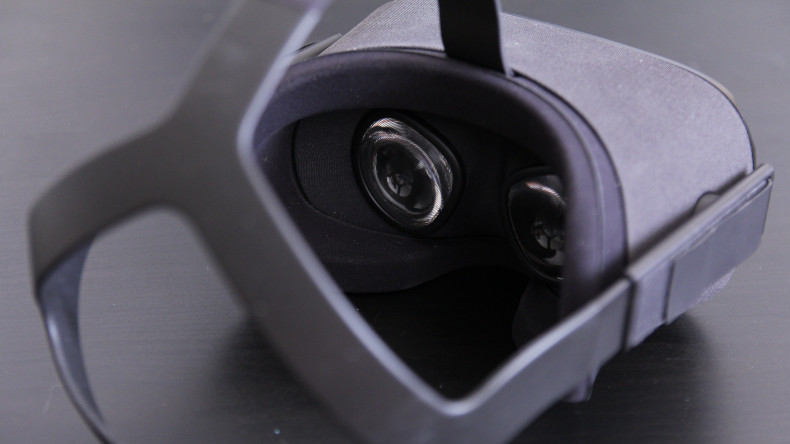
Image quality and IPD adjustment. The visuals are bright and beautiful, thanks to the OLED display. Blacks are crisp, whites are vivid, and I've noticed zero light leaks or god rays or smearing of any sort. The device has physical IPD adjustments, which is fantastic for getting the focus just right for your own eyes.
Surprisingly good audio quality. The side straps have built-in audio speakers that sound much better than I was expecting. Then again, I'm no audiophile so take my impression with a heap of salt. For those who are audiophiles, or just want an even more immersive experience, the Oculus Quest comes with TWO headphone jacks (one on either side).
Guardian system. Any time you use the Oculus Quest in a new location, you're prompted to draw a boundary around yourself on the ground. This is the "Guardian" system, which warns you when you get too close to the edge, thus preventing you from running into walls and desks and whatever else. If you do step outside the boundary, the Oculus Quest shifts into passthrough mode, allowing you to see your surroundings via camera.
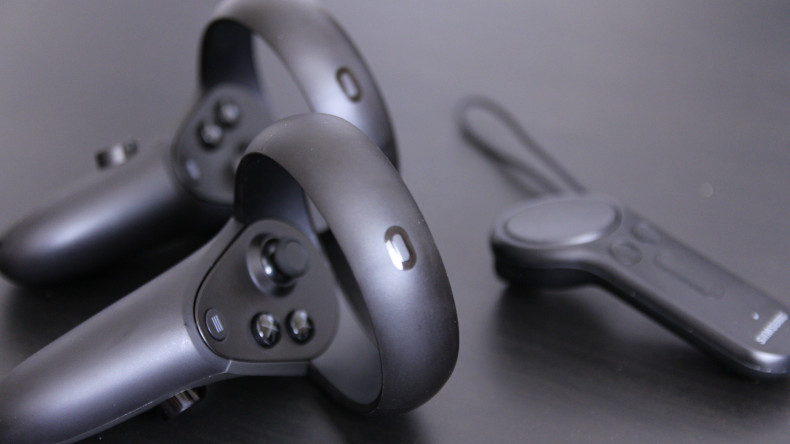
Sideloading. It's unclear whether sideloading is something that Oculus condones or simply allows, but as of right now, it's possible to install APKs for games and apps that aren't available in the Oculus Store. I love this because indie developers can still release their games even after being rejected by Oculus's curation team (more on this below), or to test their games before official release.
Learn more about how to sideload apps on Oculus Quest using SideQuest.
Great community. To be fair, I only hang out in the /r/OculusQuest subreddit, but I'm impressed by how optimistic and helpful the community is over there. Sure, we're still in the Oculus Quest's honeymoon phase and it's possible that things could spiral into negativity if Oculus makes a series of bad decisions, but for now, it's awesome. Update: It was nice while it lasted.
What I Don't Like About the Oculus Quest
Not comfortable for long sessions. The Oculus Quest weighs 1.26 pounds (571 grams), which is heavier than the Gear VR + Galaxy S8 at 1.10 pounds (500 grams) and the Oculus Go at 1.03 pounds (468 grams). For me, it gets uncomfortable after about 30 minutes, although I'm sure it'll be better once I get used to it. Then again, with a battery life of 2.5 hours, it doesn't really matter that much.
Can't use it in the dark. The Oculus Quest needs ambient light for its camera-based tracking system, which means 6DOF doesn't work when there isn't enough light (or when there's too much light). Want to watch movies in the dark? Too bad, the headset won't let you. There's been talk of a 3DOF mode coming in the future (which would work in the dark), but it's unclear how high of a priority this is for Oculus so I won't hold my breath.
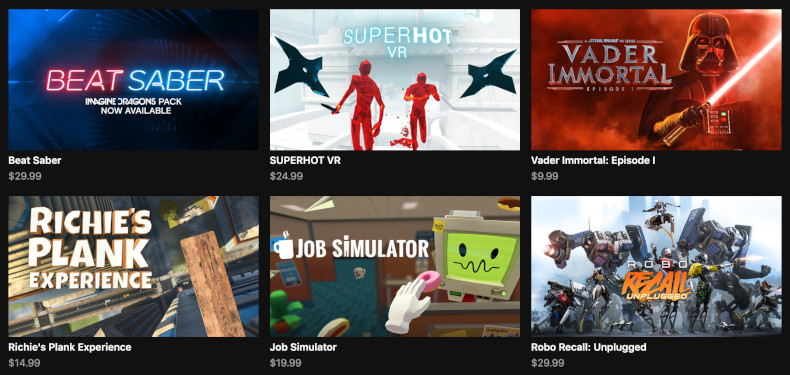
Game prices. The cheapest games in the Oculus Store are around $10, but most of the good ones cost between $15 and $30. That's cheaper than the $60 you'd drop on an AAA title for traditional gaming consoles, but still too expensive for what feels like mostly tech demos. Don't expect anything close to something like Legend of Zelda: Breath of the Wild on Oculus Quest for a long, long time.
Game selection. As of this writing, there are about 40 games and a dozen apps on the Oculus Store for Oculus Quest. That really isn't a lot when you consider each one kind of serves a different genre, so users likely end up playing 3 or 4 games they enjoy on infinite repeat (e.g. Beat Saber). The lack of compatibility with games bought for the Oculus Go or Oculus Rift is understandable but disappointing, as it discourages owners from adopting Oculus Quest.
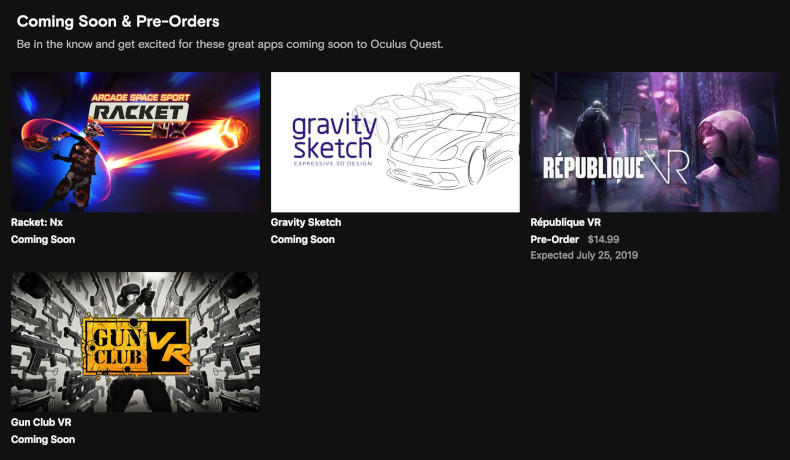
Oculus Store curation. Oculus has an insanely strict approval process for getting games added to the Oculus Store for Oculus Quest. Somehow The Bonfire and Epic Roller Coasters can be approved but Soundscape VR, To The Top, and Crisis VRigade are rejected? I understand the need to curate content to make a good impression and prevent flooding, but it's far too inconsistent from the viewpoint of a consumer.
It's constantly out of stock. According to a spokesperson, Oculus Quest sales have "substantially exceeded Facebook's internal sales projections." This is great news, but it means that—even now, two months after release—retailers like Amazon, Walmart, and Best Buy are scrambling to fulfill orders. If you order one today, you might get it in a few days or in a few weeks; it all depends on how fast Facebook can meet demand.
Clearly I'm not the only one who's impressed by this thing. If you're a VR skeptic like I was, the Oculus Quest may change your mind. I highly recommend it! There's nothing like it out there.
